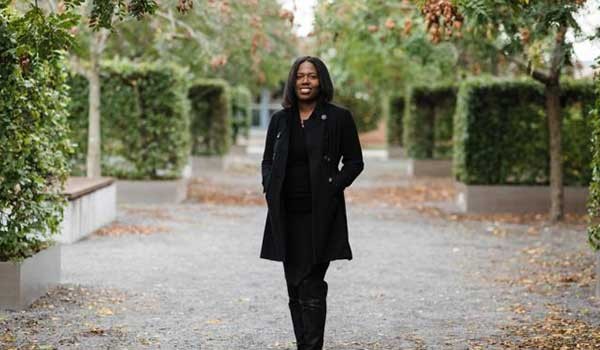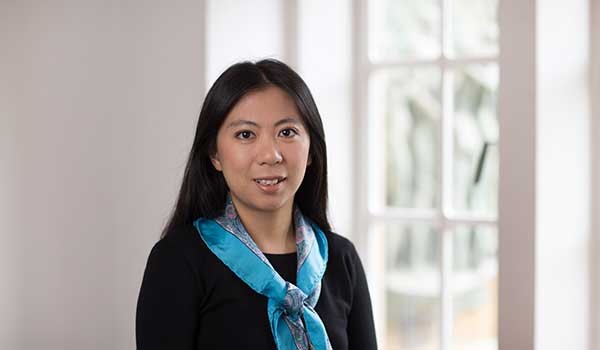News directly from Cornell's colleges and centers
Johnson and Zhang named CIFAR Azrieli Global Scholars
By Kate Blackwood
Two Cornell researchers have been named CIFAR Azrieli Global Scholars. Elizabeth Johnson, assistant professor of molecular nutrition in the Division of Nutritional Sciences, and Baobao Zhang, Klarman Postdoctoral Fellow in government in the College of Arts and Sciences, are among 19 early-career scholars from eight countries to receive the grant for 2021-2023. CIFAR is a Canadian-based global research organization.
Based in Cornell’s Division of Nutritional Sciences, jointly administered by the College of Agriculture and Life Sciences and the College of Human Ecology, Johnson studies how metabolite production by the gut microbiome influences human health.
Using high-throughput sequencing, mass spectrometry based lipidomics and general techniques in molecular biology, research in the Johnson lab seeks to understand lipid-dependent, host-microbe interactions and their effects on human health. This is done by careful analysis of the ever-changing contents of infant diapers, which contain a wealth of undeciphered information about infant well-being. A deeper understanding of disease-related changes in microbiome samples from infant diapers will provide non-invasive diagnostic information about infant health.
Last year, Johnson was senior author on a study published in the Journal of Lipid Research which explored why gut microbiomes of breastfed infants can differ greatly from those of formula-fed infants. The approaches developed in Johnson's research group could reveal how specific metabolites promote specific bacteria, allowing nutritionists to prescribe that patients eat foods containing specific metabolites to intentionally change the composition of their microbiomes.
Overall, the Johnson Lab aims to advance knowledge of how infant nutrition contributes to microbiome-dependent gastrointestinal health in order to support caregivers in their efforts to provide their babies with microbiome-conscious early-life nutrition.
Zhang will investigate challenges governments face when addressing public perceptions of inequalities brought about by new technologies under CIFAR’s “Innovation, Equity & the Future of Prosperity” research program.
“Experts and the public alike anticipate that new technologies could make society more unequal,” Zhang said. “My research focuses on how mass politics can make it hard for governments to address these inequalities, such as the political challenges of enacting policies to help workers harmed by workplace automation.”
Zhang researches trust in digital technology and governance of artificial intelligence (AI) through an empirical social science approach. She works closely with Sarah Kreps, the John L. Wetherill Professor of government (A&S), on technology policy.
In the past year, Zhang and Kreps published research on Americans’ perceptions of privacy and surveillance related to contact tracing technology introduced in the COVID-19 pandemic. They found Americans to be deeply skeptical of contact tracing technology, but that support for digital contact tracing increased with stronger privacy protections. This research was used by a U.S. Senate report in July 2020.
Zhang is also a member of Cornell’s Tech Policy Lab, which Kreps launched in 2020. In fall 2021, she will start as an assistant professor of Political Science at the Maxwell School of Citizenship and Public Affairs at Syracuse University.
The CIFAR Azrieli Global Scholars program supports outstanding early-career researchers through mentorship, a global network, professional skills development and $100,000 CAD in unrestricted research support for two years. Scholars in this year’s cohort will do natural and social sciences research in questions ranging from migration to planetary geothermal systems and from human fungal infections to climate politics.
Media Contact
Get Cornell news delivered right to your inbox.
Subscribe


